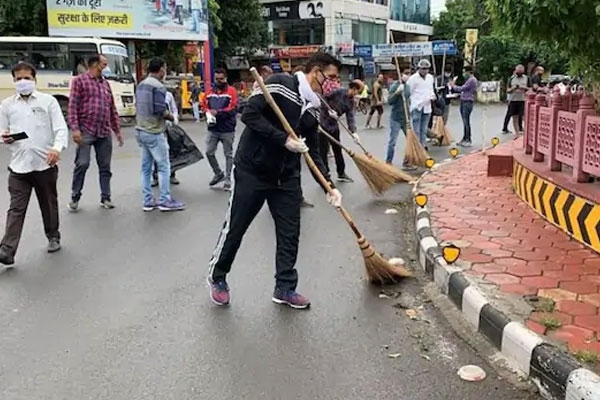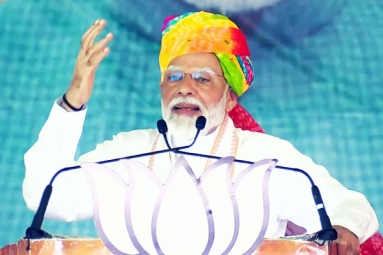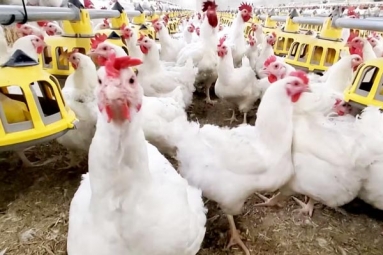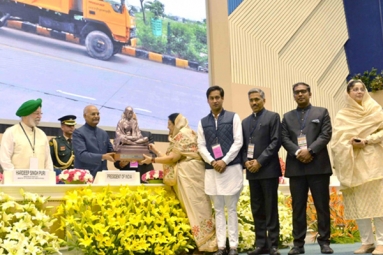Swachh Survekshan 2020 Results: Indore Cleanest City Again, but How?
August 20, 2020 16:10
(Image source from: news18.com)
Indore, Madhya Pradesh retains the top spot in the Swachh Sarvekshan results 2020 for the fourth consecutive time from 2017. What is the method that Indore is using to keep its city clean?
Swachh Survekshan 2020 was carried out in 4,242 cities, 62 cantonment boards and 92 Ganga towns. This survey was carried out in 28 days.
Mysuru has won the award for the cleanest city in India in the first edition of the survey while Indore has retained the top position for four consecutive years starting from 2017. The Swachh Survekshan 2019 was a complete digital survey which was completed in a record time.
Swachh Sarvekshan is meant to monitor the Swachh Bharat Abhiyan which was launched on October 2, 2014 marking Gandhi Jayanti. It aims to make India open-defecation free by 2019.
The abhiyan was aimed to inculcate a spirit of healthy competition among cities of India to become the cleanest cities.
Here’s the list of top 5 cities that were ranked according to cleanliness in Swachh Survekshan survey 2020:
 (Image source from: jagranimages.com)
(Image source from: jagranimages.com)
Madhya Pradesh Chief Minister congratulated the people of the state for this occasion and hoped to be on top in the list every year.
How Indore becomes the cleanest city every year in the Swachh Survekshan survey?
Take a look at how Indore city plans for waste management daily. Certain officials from NGO’s and responsible citizens explain the process to IndiaSpend, who work hard daily to keep their city clean.
- Garbage vans of Indore make their way from one street to another playing a celebratory song ‘Indore becomes number 1’, a bollywood song and everyone comes out to give their trash upon hearing the song.
- Since 2016, Indore’s Municipal Corporation has banned garbage dumps and ensured household waste segregation and converted waste into usable products like compost.
- There are project incharges of garbage vans who track the van and the exact time it makes a stop. These incharges will be alerted immediately if there is any problem like road closure, breakdown or if the driver is not well.
- Previously, the households would dump the trash into a big trash can at the end of the street which will be collected by a privately contracted company once a week. The stray dogs and other animals manifested around these dumps making it more unhygienic for the residents. The garbage van authorities explained to the people why they should segregate trash into dry and wet and dispose daily. Since then, the change has arrived
- The IMC also ensured to monitor the performance of officials and suspended those who were not supervising the garbage collection programme and rewarded those who worked well.
- The collected waste is taken to 10 transfer stations in the city, where the staff make sure that the waste is properly segregated and then it is taken to the waste processing facility.
- Around 645 tons of recyclable waste is separated daily by around 300 men. The recyclable waste is sold to recycling industries or companies that use recycled material.
- Around 550 tons of organic waste that is produced on a daily basis will be converted to compost and sold to farmers as manure.
- Non-recyclable waste is sent to a cement plant at Neemuch and to the MP Rural Road Development Corporation.
- This central waste processing facility is built on the city’s largest dumping ground. A part of this dumping which is not under use is converted to a park with plenty of trees.
- Construction waste is sent to a separate facility where it is grounded to different sizes and used for making bricks, tiles and material to edge foot paths.
- All the food outlets separate the food waste and cart if off to a small triangle at one end of the street. At 10pm daily an NGO weighs the trash and prepares it for the composting van.
- Indore is also trying to set up mobile composting machines at every food outlet and residential apartments.
- For the waste from vegetable and fruit markets, a biomethanation facility which converts organic waste to methane has been set up. Around 20 tons of waste is collected everyday and converted to bio compressed natural gas (CNG).
- The gas produced is used to run city buses, sold as cooking fuel to hotels at economic rates.
- Every night 800km of main roads are swept by machines and the footpaths and dividers are washed by a water mist.
By Gayatri Yellayi












